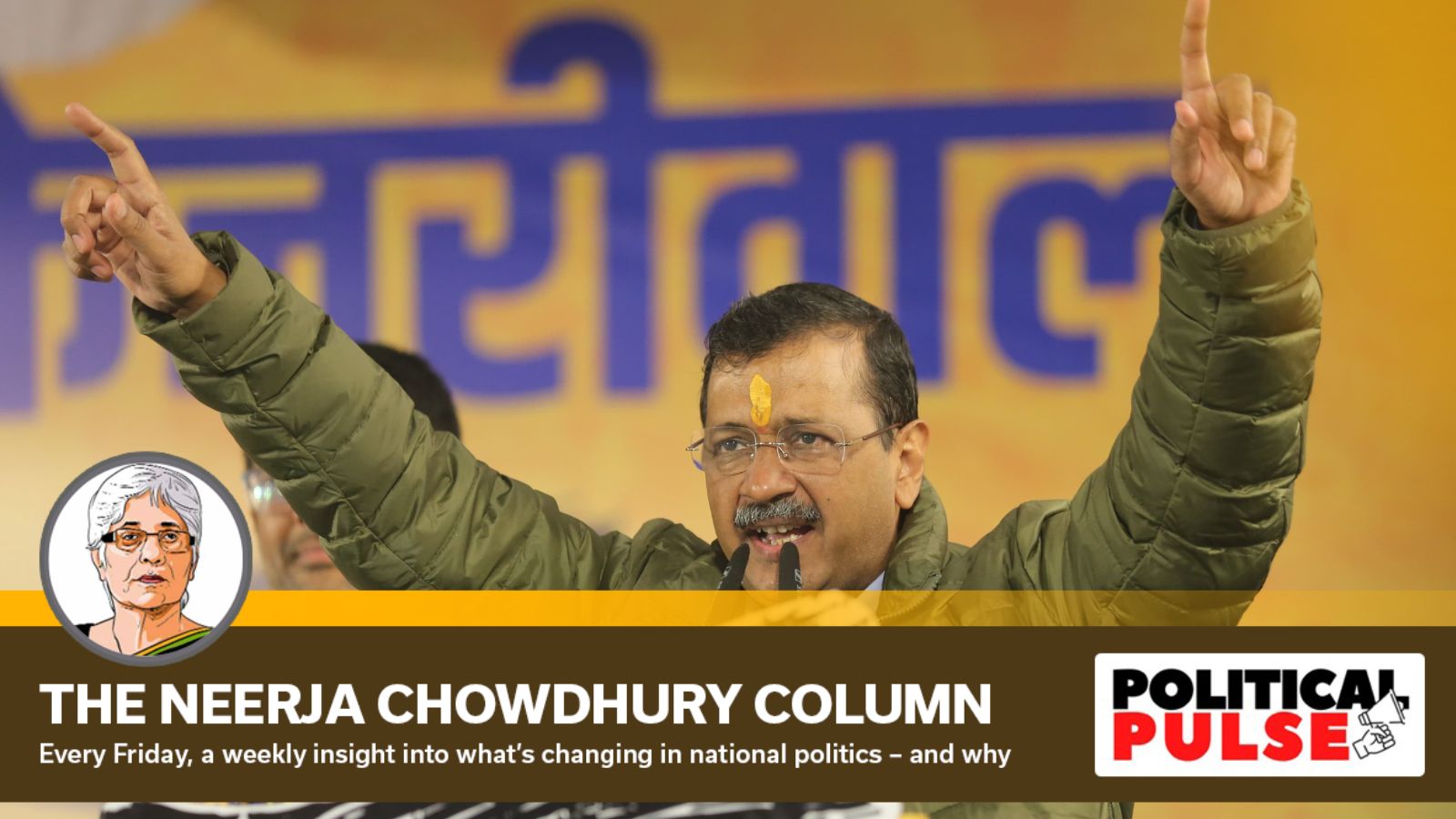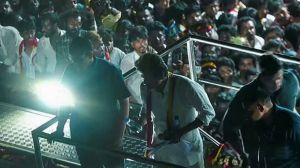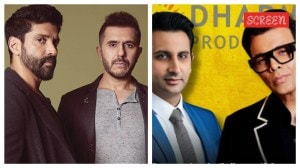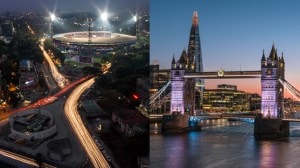In AAP’s existential battle, several factors are at play: What to watch out for in Delhi polls
For many in the BJP, Arvind Kejriwal could be the “biggest threat” to the party in the future. He is politically savvy, reads the popular mood, uses the same idiom as the BJP, and focuses on welfarism.
 If Kejriwal loses Delhi — it is a fight this time — the party could face an existential crisis. (Express Photo by Tashi Tobgyal)
If Kejriwal loses Delhi — it is a fight this time — the party could face an existential crisis. (Express Photo by Tashi Tobgyal)There is a story behind why elections in Delhi should become such a make-or-break battle for the contending parties even though it is not even a state.
It is certainly a make-or-break contest for Arvind Kejriwal. The Aam Aadmi Party (AAP) convener and former Chief Minister is the key figure around whom the February 5 election is revolving. Whether he wins or loses, he is the face of the elections, setting the poll narrative as others respond to it. If he becomes the CM for the fourth time, nationally he will be seen with new eyes. Barring Narendra Modi and Rahul Gandhi there is no other leader whose party is in power in two states.
The Delhi polls will show whether “AK” has been able to mend his image. The AAP has lost its “party with a difference” sheen over the years and the BJP is concentrating on the “Sheesh Mahal” and the liquor policy case — under which several AAP leaders, including Kejriwal, went to jail — to question Kejriwal’s “aam admi” credentials and dent the clean image that he sported.
Even so, the AAP’s rise as a national party in the last 12 years has been noteworthy. Since Independence, except for the Asom Gana Parishad (which is confined to Assam), no other group that emerged out of the womb of a movement became a party that won successive elections.
If Kejriwal loses Delhi — it is a fight this time — the party could face an existential crisis. A defeated AAP will be a sitting duck for the BJP and may erode at the seams or even splinter. Out of power and under attack, it will be difficult for even the lion-hearted amongst the AAP MLAs to resist the pressures that will likely come their way. From all accounts, the BJP is already working on a Plan B if it does not come to power.
Having been in power for 12 years, the AAP is expected to lose some of its vote share and seats this time, but it could still make it past the majority figure. However, as things stand, a mere majority is not going to be good enough. Unless it gets upwards of 50 out of 70 seats, it may not feel “safe” and that is why Kejriwal is leaving no stone unturned to convincingly win.
The Congress factor
Even more than the BJP, the fate of the AAP is linked to how much the Congress revives in Delhi. It is not expected to win many seats but it could dent the AAP vote. After Rahul Gandhi’s yatras, the party’s appeal among Dalits has gone up. It also remains the preferred choice of Muslims.
But it neither has a “chehra (face)” nor an organisation worth the name or an attractive narrative. Targeting RSS chief Mohan Bhagwat, Rahul Gandhi vowed to fight the “Indian State”, all calculated to send out a signal to Muslims, and he raised his usual cry for a caste census that has so far not got him many votes of the Other Backward Classes (OBCs).
The Delhi election is not about caste. If anything, it is more about class, the divide being more along rich-poor lines, with the jhuggi-jhopri (slum) dwellers still rooting for Kejriwal. Kejriwal, who swept the National Capital in 2015 and 2020, belongs to the “wrong” caste, the numerically minuscule Baniya community. But, like Prime Minister Modi, he has created a new category of “revdiwallas (welfare beneficiaries)” who swear by him. Kejriwal’s appeal, despite the charges against him, lies in being a “jadoogar (magician)” who delivers.
For many in the BJP, Kejriwal could be the “biggest threat” to the party in the future though his party is in power in only Punjab and Delhi, where the Lieutenant Governor calls half the shots. He is politically savvy; reads the popular mood; uses the same idiom as the BJP — pro-Hindu rhetoric without being anti-Muslim and Hindu symbols such as Hanuman — focuses on welfarism and delivery of benefits; and is a strong leader.
The Congress would like Kejriwal to lose — he has, after all, risen from its ashes. His victory may also give a new impetus to the regional satraps’ claim for leadership of the opposition INDIA bloc at the expense of the Congress. The regional parties in the Opposition grouping have supported the AAP and not the Congress in the battle for Delhi.
The CM question
Then there is the question of who will be the CM even if the AAP emerges victorious. The conditions imposed by the courts on Kejriwal while releasing him on bail — that he cannot go to his office or sign files as CM — have not been lifted. Kejriwal has said he is waiting for the “people’s court” to decide if he will be the CM again but the question remains if there will be legal impediments even if he again becomes the CM. The AAP has said Kejriwal will return as CM if the party retains power.
If push comes to shove and Kejriwal cannot become CM because of legal obstacles, can the powersharing model of the last few months hold? Then it will be Kejriwal calling the shots behind the scenes and Atishi as the woman executive head of government, much like the Sonia Gandhi-Manmohan Singh model of the UPA days.
Delhi, the world’s second-most populated city with 32 million people in the metro region, is now a metaphor for urban governance symbolising the politics of the future. It has the highest per capita income of all the cities in India. It is in the fitness of things that “how schools function” should become a central issue in the elections. While parties blame each other, the cleaning of the Yamuna and the need to control pollution are at the centre of the poll rhetoric.
Yet, while the AAP, the BJP, and the Congress all talk about pollution, they have not gone beyond blaming each other or talked about the responsibility being a collective one. None has come out with a concrete action plan on how they intend to go about mobilising other stakeholders or diluting the inter-party bitterness that is a roadblock to meaningful action.
What could be more basic than the right to breathe clean air? Surely the people of Delhi deserve better than watch helplessly the lives of their children cut short by a smog of pollution that other countries have managed to get the better of.
(Neerja Chowdhury, Contributing Editor, The Indian Express, has covered the last 11 Lok Sabha elections. She is the author of How Prime Ministers Decide)
- 01
- 02
- 03
- 04
- 05































